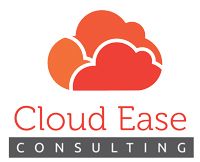Small businesses face a rapidly changing landscape where competition is fierce, customer expectations are rising, and the demand for efficiency is at an all-time high. But here’s the good news—with the right tools, even the smallest operations can level the playing field and punch well above their weight. Two of the most powerful tools at your disposal? Customer Relationship Management (CRM) software and automation These technologies empower businesses to work smarter, not harder, by streamlining processes, improving customer interactions, and driving growth. This blog explores how small businesses can harness the power of CRM and automation to stay competitive and thrive.
Understanding CRM and Its Importance
What is CRM?
Customer Relationship Management (CRM) refers to systems and practices that help businesses manage interactions with current and potential customers. At its core, CRM provides a centralised platform where you can store customer data, track communication, manage sales leads, and deliver personalised customer experiences.
Gone are the days of hunting through spreadsheets or juggling contact information across platforms. CRMs simplify how businesses manage relationships, making customer retention and satisfaction easier to achieve.
Why is CRM Crucial for Small Businesses?
For small businesses, where every dollar and every customer counts, a CRM can be the difference between thriving or struggling. Here’s why:
1. Organisation of Data: Small teams often wear multiple hats, meaning organisation can easily fall through the cracks. A CRM keeps all your customer data in one place, accessible to your entire team.
2. Improved Customer Satisfaction: By keeping track of purchase history, contact details, and communication preferences, you can tailor your service to meet your customers’ individual needs.
3. Growth Without Growing Pains: CRMs scale with your business, enabling you to manage increasing customer bases without hiring more staff.
4. Enhanced Sales Performance: CRMs track leads through every stage of the sales funnel. Knowing what stage potential customers are at ensures follow-ups occur at the right moment.
Automation: The Game Changer
Benefits of Automation
Automation takes CRM to the next level by removing repetitive, manual tasks and empowering businesses to focus on strategy and creativity. For small businesses with limited time and resources, the advantages of automation include:
- Time Savings: Automating tasks like data entry, appointment reminders, and invoice generation frees up time for more impactful activities.
- Consistency: Automation ensures processes (e.g., follow-ups or email responses) are carried out consistently, improving the customer experience.
- Cost-Effectiveness: By handling tasks normally assigned to a staff member, automation can save money and allow your team to focus on higher-value tasks.
- Scalability: Automation is your best friend as your business grows, allowing you to keep up with demand without doubling your workload.
Key Areas to Automate
Not all tasks need automation, but some are tailor-made for it. Here are a few areas where automation can provide immediate value:
- Email Marketing: Schedule personalised emails or drip campaigns based on customer actions or preferences.
- Task Management: Set up automatic task creation for your team when a lead moves from one stage of the pipeline to another.
- Social Media: Plan and queue posts so your presence remains consistent without daily management.
- Customer Interactions: Use chatbots for FAQs or automated responses for common customer inquiries.
- Business Reports: Generate regular sales performance or customer engagement reports without effort.
CRM and Automation in Action
Once you’ve integrated CRM and automation into your business, here’s how these tools can tangibly improve your core processes.
Lead Generation
CRM software can automatically capture leads from website forms or social media interactions and assign them to the right team member for follow-up. Automation can also track lead behaviour, such as email engagement or website visits, ensuring your team focuses on high-potential customers at the right time.
Customer Service
With CRM and automation, responding to customer queries becomes seamless. Set up automated workflows that route support tickets to the right team or escalate high-priority issues. An added bonus? CRM systems can provide service representatives with customer histories, helping them offer personalised and efficient solutions.
Example: A customer who frequently purchases from your online store has a delayed shipment. Your CRM flags this and automatically sends an apology email with a discount code, turning a frustrating experience into a brand loyalty opportunity.
Sales Processes
From following up with warm leads to sending personalised quotes, automation in sales can improve the efficiency of your team. CRMs can also alert users about opportunities to upsell or cross-sell based on customer preferences.
Example: After a customer purchases a particular product, the system could send an automated “You might also like” email, driving additional revenue.
CRM and Automation: Choosing the Right Tools
Selecting the right CRM and automation platforms for your business is critical. Here are a few to consider.
Top CRM Software for Small Businesses
- HubSpot Sales Hub: Offers a free plan and robust tools for marketing, sales, and customer service.
- Capsule CRM: An affordable option with fully customisable features.
- Salesforce Essentials: Tailored for small businesses with enterprise-level capabilities.
- Pipedrive: Great for businesses focused on streamlining their sales funnel.
Essential Automation Platforms
- Zapier: Integrates various platforms, allowing you to connect apps and automate workflows.
- HubSpot Marketing Hub: Combines email marketing and automation tailored to small businesses.
- Mailchimp: Perfect for small businesses looking to automate email marketing campaigns.
- Trello/Asana: Use automation capabilities within project management tools to improve task tracking.
The Road Ahead with CRM and Automation
Adopting CRM and automation isn’t just about keeping up with competitors; it’s about building a business that can thrive in a competitive landscape. These tools liberate you from mundane tasks, enabling you to channel your energy into growth and innovation.
Taking the next step is simple. Begin by identifying your business’s pain points and finding a CRM and automation solution that aligns with your goals. Small improvements in efficiency and customer engagement today can result in exponential growth tomorrow.
Looking at the best way to jumpstart your CRM and automation strategy? Book a free initial consultation to unlock your small business’s full potential. The future is bright—with CRM and automation, you can make it even brighter.

